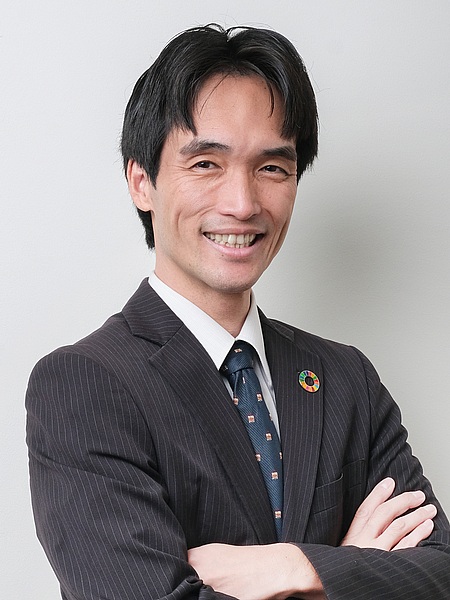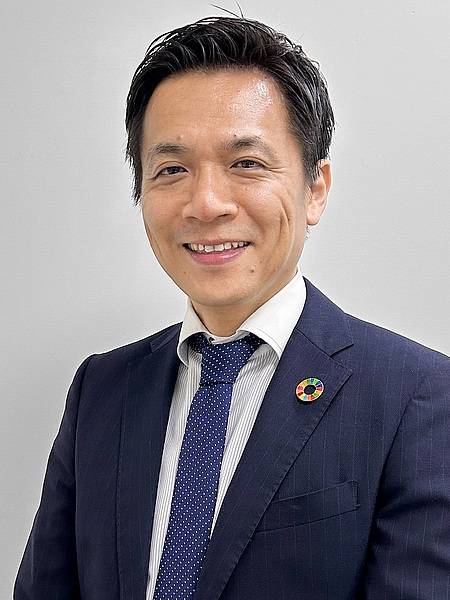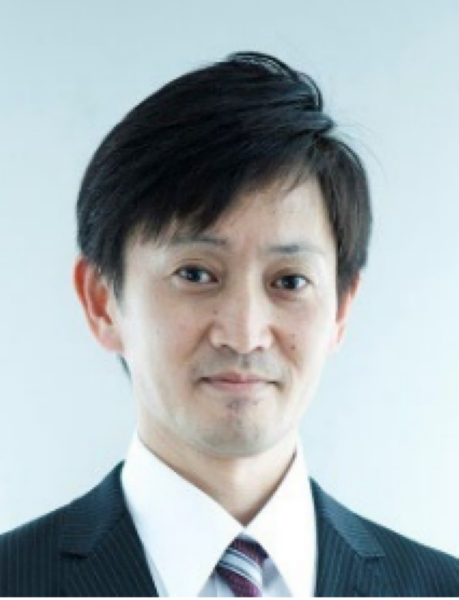The White-collar Recruitment Market in Asia: April to June 2022
Economic recovery gains momentum across Asia as pandemic regulations are eased A seller’s market in growth sectors such as semiconductors, ICT and decarbonisation

9 August 2022
JAC Recruitment Co., Ltd. (Hiromi Tazaki, Chairman and CEO) provides recruitment services across 11 countries worldwide and serves as the largest recruitment consultancy in Southeast Asia*1. JAC Recruitment has prepared this summary of trends in the white-collar recruitment markets of respective Asian nations for the second quarter of 2022, encompassing the three months from April through June.
*1: According to internal research of JAC Recruitment based on comparisons of sales generated by peer companies that engage in recruitment services throughout Asia
Trends in numbers of job vacancies posted by the JAC Recruitment Group's recruitment consultancies
| Malaysia | Singapore | Thailand | Indonesia | Vietnam | China | Hong Kong | Korea | India | Japan | |
| Relative to 2022 Q1 | 109% | 147% | 103% | 125% | 127% | 78% | 122% | 89% | 208% | 106% |
| Relative to 2022 Q2 | 105% | 96% | 80% | 101% | 111% | 64% | 135% | 96% | 121% | 99% |
* The number of jobs at Asian companies may increase or decrease due to deliberate strategies adopted by (e.g. specialising in jobs with high annual salaries or specialist jobs). Therefore, changes in the number of jobs at Asian companies do not directly reflect the performance of each company.
Headline by country (Click on the country to jump to the content)
Malaysia
・ Increased foreign investment lead to increase in recruitment activity, amid rising salary levels and a shortage of personnel
Singapore
・ The Recruitment Market Remains Steady Following Corona Deregulations
Thailand
・ Despite the slowdown in economic growth, some companies are actively investing for the medium to long term
Indonesia
・ Easing of immigration restrictions leads to an increase in hiring
Vietnam
・ Clear signs of recovery post-covid
China
・ Number of job vacancies has increased due to increased willingness to hire connected with business expansion
Hong Kong SAR
・ Exodus of professionals across sectors still remain a challenge for local hirings
Korea
・ Vacancies down slightly, but some job markets becoming seller's markets
India
・ Seller's market and prolonged recruitment by companies
Japan
・ Job vacancies on the rise mainly in cutting-edge fields, with job seekers also showing clear signs of recovery
Malysysia
Malaysia
https://www.jacgroup.com/jac-locations/jac-malaysia
https://www.jac-recruitment.my/
Number of Job Vacancies | Malaysia |
Relative to 2022 Q1 | 109% |
Relative to 2022 Q2 | 105% |
Increased foreign investment lead to increase in recruitment activity, amid rising salary levels and a shortage of personnel
Political, economical, business conditions
The Central Bank of Malaysia had gradually reduced the policy rate and kept it at a record low of 1.75% during 2020, but decided to raise it to 2.0% in May this year and again to 2.25% in July following the recovery of the Malaysian economy due to a pick-up in domestic demand and an improvement in the labour market as a result of Malaysia's growing exports. The government decided to raise the rate to 2.0% in May this year and 2.25% in July. Downside risks to the Malaysian economy remain however, due to the global economic downturn and supply chain disruptions. Malaysia's unemployment rate has remained in the 3% range since April 2022, the same level as at the beginning of the Corona pandemic.
Corporate recruitment trends
Continuing from the first quarter, both Japanese-, foreign- and local-owned companies have continued to actively recruit. The number of job openings at Japanese companies increased by 2% quarter-on-quarter and 13% year-onyear, while the number of job openings at foreign companies increased by 5% quarter-on-quarter and 4% year-onyear. While the number of job openings in the first quarter of the year is usually the highest throughout the year, this year the momentum of job openings did not stop in the second quarter. Particularly around Penang, new investment and business expansion in the semiconductor sector continues, and there is a trend of strong demand for engineers and other professionals. In the Kuala Lumpur area, in addition to companies looking to reinforce their sales staff, there was a trend towards an increase in companies looking to strengthen their back-office operations in line with the revised employment law that will come into effect in September. The need for personnel related to decarbonisation is also seen to be gradually expanding, and the development and training of such personnel will be an issue for the future.
Trends in job seekers
In proportion to the active recruitment market, the willingness of jobseekers to change jobs remains high. Many jobseekers who were cautious during corona are now looking for a salary increase of around 20-30% due to the current high recruitment demand. In the high-demand Penang area, salary levels are also increasing due to the shortage of labour. The number of registered Japanese jobseekers is returning to the same level as before the corona. There is a particularly high shortage of sales personnel.
— Lim Sze Ping, Associate Director JAC Recruitment Malaysia

Singapore
Singapore
https://www.jacgroup.com/jac-locations/jac-singapore
https://www.jac-recruitment.sg
| Number of Job Vacancies | Singapore |
| Relative to 2022 Q1 | 147% |
| Relative to 2021 Q2 | 96% |
The Recruitment Market Remains Steady Following Corona Deregulation
Political, economical, business conditions
Following Corona deregulations, economic activity has returned with the resumption of international traffic and business travel. The consumer price index also rose month after month, with May showing the highest growth rate in a decade and a half at 5.6% year-on-year. According to the Monetary and Financial Authority of Singapore (MAS), core inflation also rose by 3.6% year-on-year, the highest level in 13 years and 5 months, indicating that upward pressure is set to continue. In line with this, the Public Service Department in the Prime Minister's Office announced a 5-14% pay increase effective 1 August for approximately 23,000 public servants in certain professions. Some private sector companies are also considering following suit and offering pay rises as a retention measure. Despite growing concerns over the cost of living and rising interest rates, residential property price growth has also accelerated, with the Urban Redevelopment Authority reporting that the residential property price index rose by 3.2% in the second quarter (Apr-Jun). This is higher than the 0.7% growth rate in the previous quarter (Jan-Mar).
Corporate recruitment trends
As the economy recovers, companies' willingness to recruit is also recovering. Demand for jobs is rising, particularly in the growth industries of information and communications technology (ICT), the semi-conductor industry, where market demand is remarkable, and the medical and pharmaceutical industry. Furthermore, job demand in financerelated industries is also increasing as finance-related companies relocate from Hong Kong and Taiwan to Singapore in light of the China risk. In addition, the recruitment market has been robust due to the recent trends in FinTech, virtual currency, blockchain and GameFi related companies and new divisions being set up. As well as jobs to replace retiring staff, there were also a number of opportunities to increase staff numbers due to strong performance.
Trends in job seekers
The job market continues to be a 'seller's market', with jobseekers being offered salary increases of 20% or more in industries and positions where there is a shortage of staff. However, there have been cases where job offers have been met with retention by incumbents, and some have remained in their current positions on the condition that they receive a salary increase or more generous benefits. As for Japanese nationals jobseekers, in addition to Singapore residents registering, there has been a gradual return of jobseekers from outside Singapore registering with recruiters.
— Managing Director JAC Recruitment Singapore
Thailand
Thailand
https://www.jacgroup.com/jac-locations/jac-thailand
https://www.jac-recruitment.co.th/
| Number of Job Vacancies | Thailand |
| Relative to 2022 Q1 | 103% |
| Relative to 2021 Q2 | 80% |
Despite the slowdown in economic growth, some companies are actively investing for the medium to long term
Political, economical, business conditions
The economy continues to recover and grow compared to 2021, but a slowdown in growth was observed in the first quarter. The World Bank has also revised its growth forecast for Thailand downwards from 3.9 to 2.9%. In addition to the Corona problem, the reasons for this are thought to be that manufacturing exports, which had been strong, have been affected by economic stagnation related to high global fuel and raw material prices. The automobile industry, a key manufacturing industry, also continues to be affected by the shortage of semiconductors. Domestic demand is also recovering, but tourism, which used to account for 20% of GDP, remains suppressed although the number of foreign tourists is expected to increase significantly to between 5 and 10 million this year, compared to 420 000 last year. A significant gap from the pre-Corona figure of 40 million remains however. Domestic political trends also remain unstable, but the short-term outlook for the Thai economy remains positive.
Corporate recruitment trends
The number of job offers increased by 103% compared to the same period last year, but decreased by 80.4% compared to the first quarter. Although the previous quarter saw a kind of special demand as a reaction to the two years of reluctance to recruit following the Corona disaster, there was a significant decrease in the number of jobs overall. This can be attributed to a reluctance to recruit in relation to national and global economic trends. The automobile industry accounted for 23% of job offers, followed by the electronic components industry at 17%, logistics, IT and other industries. As in the previous year, requests from the construction industry are also on the increase. The main reason for recruiting in the previous year was to fill vacancies or to replace staff, but this year there were also notable requests for additional staff in connection with new projects and capital increases. While some companies remain cautious, an increasing number of companies are shifting to an aggressive stance in anticipation of the medium to long term, indicating a polarisation of the market.
Job seeker trends
The number of registered Thai job-seekers is on a recovery trend compared to the previous year, but the stabilityoriented and cautious attitude remains unchanged. In addition, many jobseekers set their desired salary higher due to the high cost of living and the rising cost of petrol. The number of Japanese jobseekers, particularly those from Japan who wish to change jobs in Thailand, has not recovered, possibly due to the unsettled infection situation in Japan, and the total number has not yet returned to pre-Corona levels.
— Gavin Henshaw, Managing Director JAC Recruitment Thailand

Indonesia
Indonesia
https://www.jacgroup.com/jac-locations/jac-indonesia
https://www.jac-recruitment.co.id
| Number of Vacancies | Indonesia |
| Relative to 2022 Q1 | 125% |
| Relative to 2021 Q1 | 101% |
<Chart>
Number of Job Vacancies Indonesia
Relative to 2022 Q1 125%
Relative to 2021 Q2 101%
Easing of immigration restrictions leads to an increase in hiring
Political, economical, business conditions
The increase in consumption and business activity during Ramadan and Lebaran (the great festival of the end of the fast) has led to a corresponding increase in investment. According to Indonesia's Central Statistics Agency, the GDP growth rate for the second quarter is expected to be around 5%, as in the first quarter. At the same time, two Japanese car manufacturers have announced the release of new hybrid vehicles (HV) at low prices in the second and third quarters of 2022, which is expected to increase new car sales in competition with high-priced electric vehicles (EV) already released by manufacturers in other countries.
Corporate recruitment trends
Since April 5th, conditions for entry into Indonesia have been relaxed and the issuing of VOAs has resumed. This has led to an increase in expatriate transfers and, accordingly, an increase in the number of hirings. Many companies are using the after-corona as a time for a generational change of expatriates, and many young expatriates have arrived in the country. At the same time, there is also a move towards local hiring, which allows for long-term work in the region. The number of vacancies is increasing, particularly in the manufacturing sector, but also in industrial park management companies and the hotel and serviced flat industry, while the number of sales positions, which had been declining due to covid, is increasing. The construction industry expecting an increase in projects and is also hiring more experienced technical personnel.
Trends in job seekers
For Indonesian candidates, there has been an upward trend since the Lebaran Bonus payments. There was no significant increase or decrease in the number of Japanese candidates living in Indonesia, as they are employed on a one-year contract basis. The number of candidates applying from Japan has been increasing since the Golden Week holiday, with candidates in their late 20s and early 30s being particularly active due to the easier work visa requirements compared to other countries.
— Toma Yamashita, Associate Director JAC Recruitment Indonesia

Vietnam
Vietnam
https://www.jacgroup.com/jac-locations/jac-vietnam
https://www.jac-recruitment.vn
| Number of Job Vacancies | Vietnam |
| Relative to 2022 Q1 | 78% |
| Relative to 2021 Q2 | 111% |
Clear signs of recovery post-covid
Political, economical, business conditions
The real GDP figure announced at the end of June was 7.72%, well above the forecast for the next period at the time of last year. Although the recovery in tourism has not reached the government's expectations, we are beginning to see people who appear to be overseas tourists at the airport and in the city centre. Many cafés and retail outlets have also started to open their shops, and first-hand accounts suggest that domestic demand is recovering. The impression is that we have passed through With Corona and entered the After Corona phase. Negative certificates are no longer required in manufacturing industrial parks, which suffered greatly during last year's lockdown, and the number of business travellers from Japan has clearly increased.
Corporate recruitment trends
Seasonally, the Vietnamese market is buoyant from March to May after the Chinese New Year (Tet), but many companies have been holding off on hiring for the past two years, so there is a strong impression of a real rebound. By industry, the construction and real estate industries are particularly buoyant, with real estate prices soaring compared to pre-Corona disaster levels, and the appetite for investment in the market is strong. To meet the demand for real estate in a market with a growing middle class, companies are highly motivated to invest in their businesses, and there is a corresponding need for recruitment. In addition, the Corona Disaster has led to an increase in enquiries, mainly from manufacturers, about new business ventures, which had almost come to a halt.
Trends in job seekers
Vietnamese job-seekers have been cautious over the past two years, but have become more active in along with the recovering economic situation. The rising cost of fuel for motorbikes, which are the main means of transportation, has become a burden, and there is a movement towards changing jobs at companies with better conditions, even if only a little.
There is also a recovery trend in the number of Japanese jobseekers seeking to change jobs in Vietnam. Several jobseekers started their job search at the beginning of the year, received an early job offer, completed visa and travel formalities and started working in the region in the second quarter.
— Kengo Atsumi, Managing Director JAC Recruitment Vietnam

China
China
| Number of Job Vacancies | China |
| Ralative to 2022 Q1 | 78% |
| Relative to 2021 Q2 | 64% |
Economic activity hit hard by the lockdown, but recruitment continues, particularly in the manufacturing sector
Political, economical, business conditions
The lockdown in many parts of the world started at the beginning of the year. In Shanghai in particular, it lasted for more than two months and dealt a heavy blow to the global economy. Domestic demand in particular fell, and sales at the annual ”618” online shopping sale on June 18th grew by 10.3% year-on-year, a significant slowdown compared to last year's 27.7% growth. Economic growth is also forecast to fall into negative for the first time since 2020. With President Xi Jinping's instructions to achieve the annual growth target of around 5.5% at all costs while continuing the zero-corona policy, economic stagnation and contraction seems a possibility.
Corporate recruitment trends
Normally, the number of vacancies tend higher and recruitment activity picks up after the Chinese New Year, but this year the number of vacancies fell significantly, by 78% year-on-year and 63.5% quarter-on-quarter. Nevertheless, a look inside shows that companies are continuing their recruitment activities by conducting interviews online, with 45% of companies continuing to recruit during the lockdown and 27% considering hiring after the lockdown, according to a survey conducted by JAC Recruitment. Trends differ significantly by industry, with some companies in manufacturing and consulting in particular continuing to recruit in anticipation of a postlockdown recovery, while some companies in FMCG, where consumption has fallen, have stopped recruiting. In the manufacturing industry, many companies saw a sudden increase in demand in June after the lockdown.
Trends in job seekers
The number of jobseekers fell to 87.7% compared to the previous quarter; June saw an increase of 147% compared to the previous month, but overall, the number of jobseekers tended down compared to the January-March period. A wait-and-see approach to job search during the lockdown could be seen. After the lockdown ended, there was a noticeable trend in locals who had hoped to work in cities such as Shanghai and Beijing to return or stay in the countryside on the advice of their parents. The risk of further lockdowns kept some who had hoped to return to mainland China from Japan or other countries to stay put. The difficulty in securing high level human resources remains high.
— Hiroko Otsubo, Associate Director JAC Recruitment Shanghai

Hong Kong SAR
Hong Kong SAR
https://www.jacgroup.com/jac-locations/jac-hong-kong-sar
https://www.jac-recruitment.hk
| Number of Job Vacancies | Hong Kong |
| Relative to 2022 Q1 | 122% |
| Relative to 2021 Q2 | 135% |
Exodus of professionals across sectors still remain a challenge for local hirings.
Political, economical, business conditions
The Hong Kong economy witnessed a deterioration in the first half of 2022, with GDP contracted by 4% due to slower growth in global demand and pandemic situation hit the highest during Q1 and across April in Q2. It was the first decline in GDP since the 4th quarter of 2020 and was the steepest since Q3 2020 with the city imposed soft lockdowns. The first positive GDP forecast of 2022 is projected to be in Q3 2022 and is estimated to climb to 7.9% in Q1 2023. Domestic economic activities were getting progress since April with relaxation in social distancing measures. The market of Q2 was getting more volatile with unemployment and underemployment situation improved in March – May. With a new round of Consumption Voucher Scheme to be released in Q3 together with the 2022 Employment Support Scheme, the seasonally adjusted unemployment rate fell by 0.3% from 5.4% in Feb - April to 5.1% in March – May. With the provided local epidemic remains “under control”, the forecast rate of inflation 2022 are maintained at a ound 2%.
Corporate recruitment trends
There were increased enquiries at Q2 with demand across different industries in banking, export, local retail, etc. In particular, the F&B, pharmaceutical and logistics industries are actively hiring, although most of them are replacement positions. With the trend of emigration, some companies are willing to increase their budget for the right talents, especially in the IT industry with many sizeable companies and conglomerates currently having a very strong competition on digital transformations. Technology transformation facilitated remote working with many employers offering hybrid working mode and even 4-working days per week to remain competitive in the market. Senior executives and C-level in technology and banking & finance sectors continue to be a challenge for hiring as the exodus of qualified professionals continues to add empty seats to be filled locally as qualified talent pool continues to shrink. Looking ahead, with the current epidemic situation, domestic economic activities, retail business and thus labour market conditions should continue to improve in the coming months.
Job seeker trends
Candidates are getting more active after the 5th wave of pandemic while remaining cautious about the opportunities especially the potential growth in the roles with the employers. Candidates are getting more aggressive in salary jump compared to last year. For the Japanese market, there is a trend of Japanese candidates living in Japan moving back to HK. Tech talents are still a challenge for employers. The new generations put higher priority to start-up or “chill” environment. Companies with more traditional settings are considering to switch their junior headcounts to hiring more mature talents to avoid discrepancy in culture fit. Candidate activity in Banking, Finance & Insurance sectors remain sector specific and active and competitive. Consolidation of companies and business restructuring adds to new flow of talents into the candidate pool.
— Jannet Cheung, Managing Director JAC Recruitment Hong Kong

Korea
Korea
https://www.jacgroup.com/jac-locations/jac-korea
https://www.jac-recruitment.cn/en
| Number of Job Vacancies | Korea |
| Relative to 2022 Q1 | 89% |
| Relative to 2021 Q2 | 96% |
Vacancies down slightly, but some job markets becoming seller's markets
Political, economical, business conditions
According to the Economic Outlook Report published by the Bank of Korea in May, the real GDP growth rate for the current year was revised downwards to 2.7%. Although there are upward factors in the background, such as the easing of domestic quarantine measures, there are significant downward factors, such as the situation in Ukraine, the acceleration of interest rate hikes in major countries and China's lockdowns. On the other hand, the consumer price index recorded a 6.0% rise in June compared with last year, and the forecast for the current year has been revised sharply upwards to 4.5%. In addition, at the end of June, the Korean Minimum Wage Board confirmed the minimum wage for the next fiscal year at 9,620 won per hour, an increase of 5% compared to the current fiscal year.
Corporate recruitment trends
Corporate job vacancies in the second quarter were 3% lower than in the previous quarter and 10% lower than in the previous year's quarter. The appetite for recruitment remains strong among semiconductor-related suppliers, as conglomerate giant Samsung Electronics is expected to record its second highest ever sales on the back of its strong semiconductor business, which has remained firm despite cooling global consumer confidence and continuing high prices for raw materials and logistics costs. In addition, not only in the semiconductor sector, but also in various other industries, there are increasing plans to recruit new graduates and young personnel, and the market is changing into a seller's market. As a result, there have been cases where recruitment activities have been prolonged due to the inability to find the right candidate. And although the possibility of a sixth covid wave in the summer is beginning to be discussed, the impact is minimal at present.
Trends for job seekers
The number of job applicants is beginning to increase, but seems small compared to the number of firm job offers. As a result, the market for high-potential personnel is becoming a seller's market, and companies are beginning to compete for recruits. Companies that require a large number of interviews or set interview dates at the convenience of the company are at a disadvantage in the competition for jobs, so flexible scheduling is required to accommodate applicants. In addition, science and engineering personnel are in particularly high demand, and companies have begun to review their wage tables, including benefits, when recruiting.
— Yuichiro Tsuchiyama, Managing Director JAC Recruitment Korea

India
India
https://www.jacgroup.com/jac-locations/jac-india
https://www.jac-recruitment.in
| Number of Job Vacancies | India |
| Relative to 2022 Q1 | 208% |
| Relative to 2021 Q2 | 121% |
Seller's market and prolonged recruitment by companies
Political, economical, business conditions
Improved control of corona infections has led to a deregulation of behavioural restrictions, and business and commercial activity is returning to normal. The economy has gradually entered a phase of recovery from the second wave of decline, partly due to the widespread use of vaccination. Depending on the type of business, economic activity has increased, with many companies returning to business as usual. According to the Centre for Monitoring Indian Economy (CMIE), the unemployment rate rose to 11.9% during peak Covid, but as of November 2021, the employment situation had fallen to 7.0%, and the economy has recovered to pre-corona levels.
Corporate recruitment trends
While paying attention to infection rates, many Japanese companies have started returning to normal operations. Recruitment activities also began to return to pre-Corona conditions, with companies conducting recruitment activities efficiently, conducting interviews both online and face-to-face. As expatriates returned and sales activities started to return to normal, there was a sharp increase in hiring, particularly for service-related sales positions and sales positions for Japanese companies. The recruitment market became more active, with companies that had previously put hiring on hold resuming their recruitment activities, and especially personnel with the potential to make an immediate impact had multiple offers. However, due to the shortage of human resources in the Indian recruitment market, recruitment did not proceed according to schedule, and some companies saw their hiring take longer than normal.
Trends in job seekers
An increasing number of candidates actively seeking employment in India while applying for jobs in other countries accompanied the slowing of the pandemic. On the other hand, we also saw an increase in the number of candidates who were monitoring the situation, thinking carefully about building their future careers, and taking their time to assess the experience they can acquire in India vs. what they can acquire outside of India. As a single candidate may receive multiple offers, it is important for companies and agents to communicate closely with each other in the recruitment process, for example, to provide candidates with accurate information on the career goals they are aiming for and the experience they can acquire while working in India. This is one of the keys to increasing success rates.
— Kazuo Komaki, Managing Director JAC Recruitment India

Japan
Japan
https://www.jacgroup.com/
https://corp.jac-recruitment.jp/en/
<Chart>
Number of Job Vacancies Japan
Relative to 2022 Q1 106%
Relative to 2021 Q2 99%
| Number of Job Vacancies | Japan |
| Relative to 2022 Q1 | 106% |
| Relative to 2021 Q2 | 99% |
Job vacancies on the rise mainly in cutting-edge fields, with job seekers also showing clear signs of recovery
Jobs related to overseas operations of Japanese companies
Although the pandemic situation has generally settled down, companies are facing various downside risks to the economy, such as rising resource prices due to the situation in Ukraine, supply chain disruptions due to the lockdown in China, and soaring prices due to the sharp depreciation of the yen following the US interest rate hike. If this is prolonged it could put a brake on the stable increase in shipments of industrial and construction machinery, and there are also concerns about negative effects on employment and wages. On the other hand, the resumption of foreign visitors to Japan in June and the continuing depreciation of the yen are expected to lead to a certain recovery in domestic consumption, including services and tourism, from July onwards.
Trends in corporate recruitment
The effective ratio of job offers to job seekers in June 2022 stood at 1.23, a further improvement from the previous quarter. The number of job offers from Japanese companies related to overseas operations received by the Company also maintained the level of the January-March period, when there was an increase due to a rush at the end of the Japanese fiscal year. The number of jobs that require overseas postings has increased approximately 1.5 times compared to the same period last year. These are mainly external applications for replacements for incumbents sent back due to the pandemic, and recruitment is active among small and medium-sized enterprises (SMEs) that lack overseas management personnel. There are many vacancies in manufacturing and in major corporations, with a continued increase in recruitment in line with investment in growth areas such as 'CASE (nextgeneration vehicles)' and 'green (decarbonisation)' jobs, and a strong appetite for recruitment in industrial machinery and electronic components.
On the other hand, in the automotive industry, which has been forced to reduce production due to the lockdown in China and the shortage of semiconductors, complete vehicle manufacturers and major Tier 1 (first-tier contractors) level companies continue to have a strong appetite for recruitment, while small and medium-sized component manufacturers (Tier 2 and 3 companies) have a declining appetite due to high costs and uncertainty over the future. In various advanced fields, there is a strong demand from overseas companies. Companies are struggling to recruit in various advanced fields, as many operations involve collaboration with overseas companies and require foreign language skills in addition to specialisation in research, technology, and other duties. There are also a number of sales jobs in which companies are actively marketing their technologies to the European market, which is leading the way in decarbonisation. Non-manufacturing jobs are also on the rise, with companies in the retail and content businesses resuming their search for people to manage overseas web marketing and physical shops.
Jobseeker trends
The number of new jo seekers (registrants with overseas business experience) remained stable at 100% quarteron-quarter from April to June. Although slightly down on the same period last year (94%), it remains relatively high compared to recent quarterly results. With the resumption of global business by companies, personnel with overseas work experience and those who are good at English are in even greater demand by companies, and their pass rates are generally 5-10% higher than those of other personnel. (Note: Estimated based on the percentage of candidates with overseas work experience and English intermediate or above among those who attended the first round of interviews between April and June).
Although there remains a mood of caution in job-seeking activities due to various uncertainties, an interest in changing jobs is increasing as adaption to the social changes accelerated by the Corona disaster and a willingness to contribute in solving social problems is rising.
On the other hand, the hurdles for selection by companies remain high and the competition for excellent personnel is even more intense, so when recruiting personnel with knowledge and experience in highly specialised fields such as advanced IT and healthcare, or in overseas business, it is important to set conditions that are more competitionconscious. In the case of recruiting personnel with knowledge and experience in highly specialised fields such as advanced IT and healthcare, or in overseas business, it is necessary to set conditions and other attractive features (e.g. flexible workstyles) that are more competition-conscious.
— Kenji Sahara, Chief Analyst JAC Recruitment












